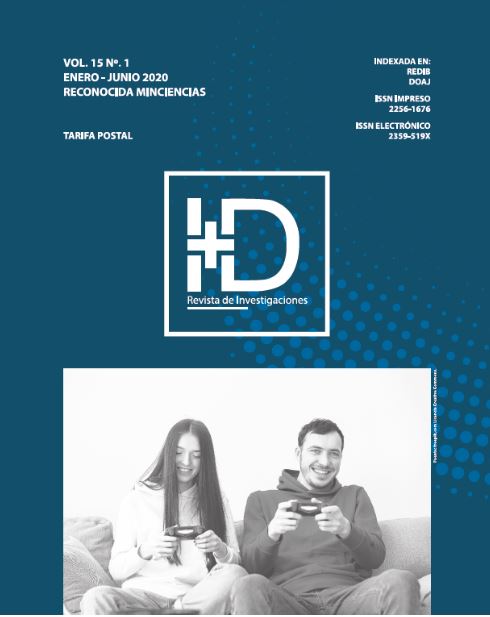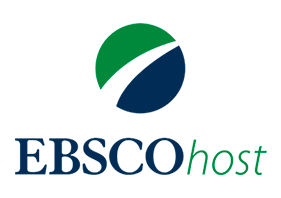Gamification in the educational field: A bibliometric analysis
DOI:
https://doi.org/10.33304/revinv.v15n1-2020003Keywords:
bibliometric analysis, gamification, education, motivation, educational trend.Abstract
Gamification is understood as the incorporation of playful elements in contexts that are not recreational, to increase concentration and commitment, in order to increase the motivation to perform tasks that a priori may seem unattractive. Given its relevance, this article presents a bibliometric analysis of the progress made by the use of gamified tools in the educational field. For the development of this research, a search of literature was conducted in Scopus and Web of Science. The results of this exercise were analyzed using Software Vantage Point, in terms of the type of documents, productivity, lexical analysis, and research areas. The findings of this study indicate that gamification is an increasingly relevant subject supported by different scientific research. It is a field that can be applied in various educational contexts and that can generate multiple benefits such as increased motivation and engagement.Downloads
References
Aldemir, T., Celik, B., & Kaplan, G. (2018). A qualitative investigation of student perceptions of game elements in a gamified course. Computers in Human Behavior, 78, 235–254. https://doi.org/10.1016/j.chb.2017.10.001
Borras-Gene, O., Martiñez-Nuñez, M., & Fidalgo-Blanco, Á. (2016). New Challenges for the motivation and learning in engineering education using gamification in MOOC. International Journal of Engineering Education, 32(1), 501–512.
De-Marcos, L., Garcia-Lopez, E., & Garcia-Cabot, A. (2016). On the effectiveness of game-like and social approaches in learning: Comparing educational gaming, gamification and social networking. Computers & Education, 95, 99–113. https://doi.org/10.1016/j.compedu.2015.12.008
Deterding, S., Dixon, D., Khaled, R., & Nacke, L. (2011). From game design elements to gamefulness. In Proceedings of the 15th International Academic MindTrek Conference on Envisioning Future Media Environments - MindTrek ’11 (p. 9). New York, New York, USA: ACM Press. https://doi.org/10.1145/2181037.2181040
Dicheva, D., Dichev, C., Agre, G., & Angelova, G. (2015). Gamification in Education: A Systematic Mapping Study. Educational Technology & Society, 18(3), 75–88.
Garone, P., & Nesteriuk, S. (2019). Gamification and Learning: A Comparative Study of Design Frameworks. In 10th International Conference on Digital Human Modeling and Applications in Health, Safety, Ergonomics and Risk Management (pp. 473–487). https://doi.org/10.1007/978-3-030-22219-2_35
Gasca-Hurtado, G. P., Gomez, M. C., & Zepeda, V. V. (2018). Gamification experience of an educational environment in software engineening: Gamifying a course of agility for software process improvement. In 2018 13th Iberian Conference on Information Systems and Technologies (CISTI) (pp. 1–6). IEEE. https://doi.org/10.23919/CISTI.2018.8399233
Gonzalez, L., Gomez, M. C., & Echeverri, J. A. (2017). Motivation and Virtual Education in Computer Science: Case Universidad de Medellín-Colombia. IEEE Latin America Transactions, 15(6), 1176–1181. https://doi.org/10.1109/TLA.2017.7932706
Kasurinen, J., & Knutas, A. (2018). Publication trends in gamification: A systematic mapping study. Computer Science Review, 27, 33–44. https://doi.org/10.1016/j.cosrev.2017.10.003
Kyewski, E., & Krämer, N. C. (2018). To gamify or not to gamify? An experimental field study of the influence of badges on motivation, activity, and performance in an online learning course. Computers and Education, 118(April 2017), 25–37. https://doi.org/10.1016/j.compedu.2017.11.006
Li, W., Grossman, T., & Fitzmaurice, G. (2012). GamiCAD. In Proceedings of the 25th annual ACM symposium on User interface software and technology - UIST ’12 (p. 103). New York, New York, USA: ACM Press. https://doi.org/10.1145/2380116.2380131
Llorens-Largo, F., Gallego-Duran, F. J., Villagra-Arnedo, C. J., Compan-Rosique, P., Satorre-Cuerda, R., & Molina-Carmona, R. (2016). Gamification of the Learning Process: Lessons Learned. IEEE Revista Iberoamericana de Tecnologias Del Aprendizaje, 11(4), 227–234. https://doi.org/10.1109/RITA.2016.2619138
Marczewski, A. (2013). Gamification: A Simple Introduction.
McDaniel, R., Lindgren, R., & Friskics, J. (2012). Using badges for shaping interactions in online learning environments. In 2012 IEEE International Professional Communication Conference (pp. 1–4). IEEE. https://doi.org/10.1109/IPCC.2012.6408619
Mekler, E. D., Brühlmann, F., Tuch, A. N., & Opwis, K. (2017). Towards understanding the effects of individual gamification elements on intrinsic motivation and performance. Computers in Human Behavior, 71, 525–534. https://doi.org/10.1016/j.chb.2015.08.048
Melo-Solarte, D. S., & Díaz, P. A. (2018). El Aprendizaje Afectivo y la Gamificación en Escenarios de Educación Virtual. Información Tecnológica, 29(3), 237–248. https://doi.org/10.4067/S0718-07642018000300237
Olsson, M., Mozelius, P., & Collin, J. (2015). Visualisation and Gamification of e-Learning and Programming Education. The Electronic Journal of E-Learning , 13(6), 441–454. Recuperado de www.ejel.org
Paharia, R. (2010). Who coined the term “gamification”? September 5, 2019. Recuperado de http://goo.gl/CvcMs
Pascuas, Y., Vargas, E., & Muñoz, J. (2017). Experiencias motivacionales gamificadas: una revisión sistemática de literatura. Innovación Educativa, 17(75), 63–80.
Sailer, M., Hense, J. U., Mayr, S. K., & Mandl, H. (2017). How gamification motivates: An experimental study of the effects of specific game design elements on psychological need satisfaction. Computers in Human Behavior, 69, 371–380. https://doi.org/10.1016/j.chb.2016.12.033
Seaborn, K., & Fels, D. I. (2015). Gamification in theory and action: A survey. International Journal of Human-Computer Studies, 74, 14–31. https://doi.org/10.1016/j.ijhcs.2014.09.006
Simanca, F., Abuchar, A., Blanco, F., & Carreño, P. (2017). Implementación de herramientas tecnológicas en los procesos de enseñanza aprendizaje de los triángulos. I+D Revista de Investigaciones, 10(2), 71–79.
Taspinar, B., Schmidt, W., & Schuhbauer, H. (2016). Gamification in Education: A Board Game Approach to Knowledge Acquisition. Procedia Computer Science, 99, 101–116. https://doi.org/10.1016/j.procs.2016.09.104
Torres-Menárquez, A. (2016, July 7). El cerebro necesita emocionarse para aprender. El País Periódico Global.
Osipov, I. V., Nikulchev, E., Volinsky, A. A., & Prasikova, A. Y. (2015). Study of Gamification Effectiveness in Online e-Learning Systems. International Journal of Advanced Computer Science and Applications, 6(2). https://doi.org/10.14569/ijacsa.2015.060211
Werbach, K., & Hunter, D. (2012). For the Win: How Game Thinking Can Revolutionize Your Business. Wharton Digital Press.
Yildirim, I. (2017). The effects of gamification-based teaching practices on student achievement and students’ attitudes toward lessons. The Internet and Higher Education, 33, 86–92. https://doi.org/10.1016/j.iheduc.2017.02.002











